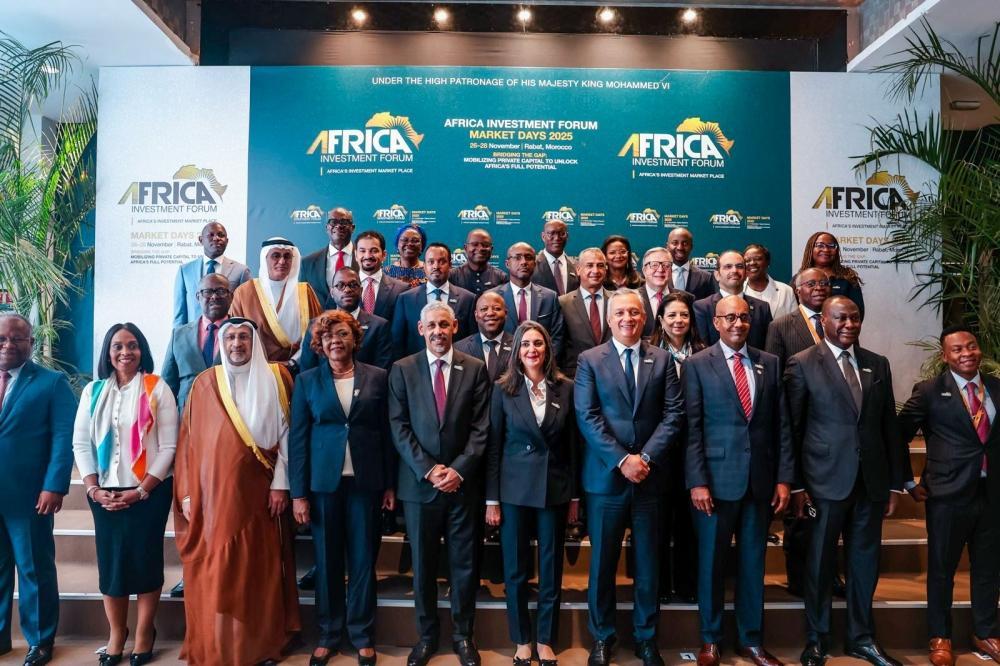Africa-Press – Rwanda. Relying solely on public funding or foreign aid is no longer sufficient to meet Africa’s growing needs, African ministers and investors have said, calling for more private investment to close the continent’s infrastructure gaps.
They made the remarks during the Africa Investment Forum (AIF) on November 26, in Rabat, Morocco.
Under the theme ‘Mobilising Private Capital to Unlock Africa’s Full Potential,’ the AIF is an annual event that serves as a platform where investment opportunities across Africa are showcased, discussed, and advanced.
Speaking during the gathering, Situmbeko Musokotwane, Zambia’s Minister of Finance and National Planning, said the country has shifted its development strategy following hard lessons from debt distress, with a renewed focus on private investment as a driver of growth.
“We learnt the hard way that debt alone cannot deliver the future our young people deserve. That is why we are opening every sector including mining, energy, logistics, agriculture, to private capital and creating a manageable environment for investors,” he said.
“The country’s recent experience with excessive borrowing exposed the limits of relying on government debt and external aid, which failed to even drive sustainable progress and instead deepened economic challenges. In response, Zambia has rolled out a series of policy reforms aimed at restoring investor confidence, improving regulatory efficiency and unlocking new capital across key sectors,” he added.
These efforts have already borne fruit, with over US$7 billion in new mining investments secured in the past three years and major public-private partnership projects underway, signaling a significant shift toward a more resilient, investment-driven development model.
Ahmed Shide, Ethiopia’s Minister of Finance, said African governments should prioritise regional infrastructure and regulatory reform as a strategy to attract private capital and strengthen cross-border value chains
“Major infrastructure projects should be designed with cross-border utility in mind, ranging from energy transmission lines to transport corridors and logistics hubs. This approach can create a more manageable environment for private sector participation,” he said.
He also said that projects that serve multiple countries attract larger investment and offer greater development impact.
As part of its own reform agenda, Ethiopia is overhauling investment rules, customs procedures and digital trade systems to ensure predictability and interoperability across the region.
Shide said that clear and harmonised regulations remain one of the most powerful tools that could unlock capital flows in Africa.
John Mbadi Ng’ongo, Kenya’s Cabinet Secretary of National Treasury and Economic Planning, said African countries need to implement regulatory reforms that provide clarity, reduce bureaucratic delays and align with regional standards, to be able to attract private investors.
“If Africa strengthens trade facilitation, dispute resolution mechanisms and standards bodies, they can significantly lower transaction costs for investors operating across multiple jurisdictions. Countries must also identify their competitive sectors and align national industrial strategies with regional market demand,” he said.
For More News And Analysis About Rwanda Follow Africa-Press






